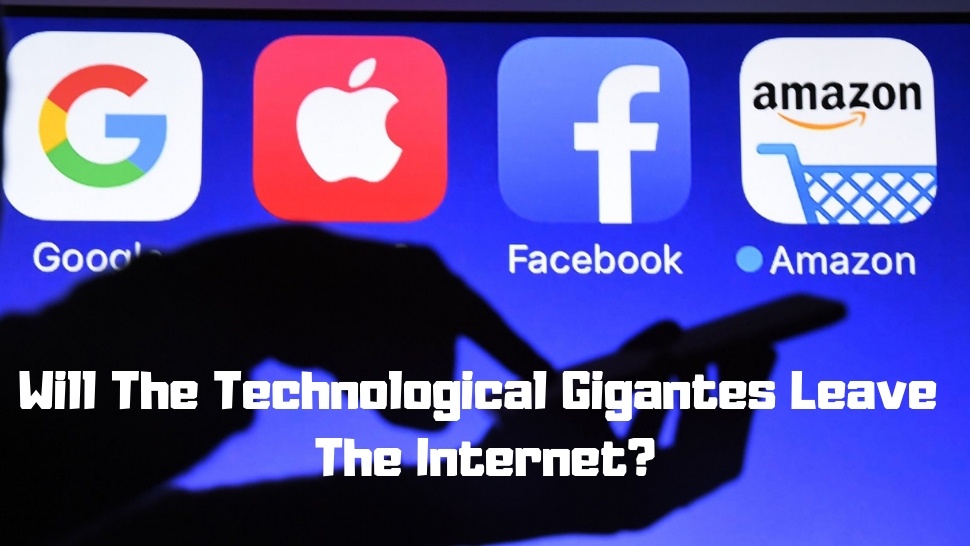Internet users supplied companies with their personal data to nowadays to feed the accelerated development of artificial intelligence. Has the high technology industry taken anything from the network? The existence of the high technology industry arises from its extremely ambiguous relationship with its users. Namely, the bond that simultaneously maintains compassion and indifference has always been unstable, but functional. These two contradictory principles, for example, enabled technology companies, often regarded as evil doctors, to hide under the mantle of Mother Theresa. However, while the unresolved opposites of the two contradictory principles are piling up, we notice the inconsistency of the vision of society in the general sense that these companies have.
The story of compassion has to do with it. Technological giants have adjusted their business to our ability to consume, which makes their interests a bit in line with ours; In order to buy what is being advertised, we need money. Perhaps such a merciful attitude could be compared with the process of Henry Ford who paid so well his workers that they could buy the cars they produced; less merciful would take a slave who was feeding his slaves for comparison, so as not to lose them because of exhaustion. Unlike Ford and slave owners, our technological powers want someone else to fund the best solutions.

Another principle that encourages these companies - that is, indifference to users - comes from a constant struggle for dominance in that sector. While technological giants - mainly regarded as monopolists - relate to a variety of fields, from search to online shopping, they are constantly fighting at a higher level, that is to collect as much data as possible. That's why they constantly monitor each other in conquering new territories, from cloud computing to autonomous vehicles. For many - for example, Amazon - data warehousing services provide higher earnings than normal business activities.
Here is a secret ingredient artificial intelligence, and its secret ingredient is data collected from users earlier, during the consumer-oriented developmental period. Once fully developed, it could be rented to governments and companies very profitable. And while earnings are rising, shifting towards data storage services could leave individual users, former pets of tech giants, without support for their obsession with cats. The appearance of today's digital economy is cheating, which is well known to tech giants. Andrew Ng (the founder of the Google Brain Project, and then the leader of the artificial intelligence department in the Chinese giant of web browser Baidu) said in his speech at Stanford University that in large companies, products are mostly represented not so much because of earnings, On the other hand, they make a profit through another product.

This is also the best example of what we can call "data extraction". To understand how the process is taking place, look at Google. She recently introduced Cloud AutoML, a service that allows business companies to exploit its machine learning infrastructure (built using data provided by the user) to train and build their artificial intelligence models - of course, with a certain fee.
On the other hand, it's still worth paying them to be nice to users - just to mention the free application Google's Arts & Culture that allows them to find their duplicate in art pictures - because it will allow them to fine-tune the existing artificial intelligence. We only wonder how much longer we will need technological giants to train artificial intelligence. The economy of data extraction tells us that it can not last forever - it will stop at the moment when artificial intelligence, trained with all the extracted data, works well enough. In other words, the future belongs to Google's Cloud AutoML service, the use of which is paid rather than by the free face-to-face application.

Perhaps, due to such a development of the digital economy, we should say that data is no longer a new driving force because their significance could be short-lived, but artificial intelligence is certainly the case. The more it develops, the technology sector becomes necessary and develops into a too powerful industry that will not just collapse. Their concern as to whether we will be able to buy a pair of shoes is totally different from their preoccupation by maintaining a monopolistic approach to valuable services based on artificial intelligence that is needed for everyone. Only remember the fighting against false news, cyber attacks, tumors: artificial intelligence is used everywhere. The world will easily survive the disappearance of digital advertising providers, but will not discard - not today - solutions that artificial intelligence offers for its crises. See only Emanuel Macron or Justin Trudeau, who compete to attract Google or Facebook and allow them to expand their artificial intelligence activities in France and Canada.
How, then, let's understand the latest promise by Mark Zuckerberg to fix the social network he created and that users will spend time on Facebook. The promise came as several Silicon Valley engineers said they were developing user-dependent features. Of course, we can already conclude the direction of the new and improved Facebook 2.0 network. Using the compassion that we have already mentioned, it will surely promise that it will rid itself of inappropriate content and use artificial intelligence to find posts that will enrich our lives. They will say that the more they learn about us, it will be easier for them to find the right content for us.

Just a moment! How did we find ourselves in a world where technological giants create services that addictive to hijacking our data, and then use solutions that provide artificial intelligence to free themselves from the addiction they have created? And what happens when the principle of compassion prevails under the pressure of competition and ever closer to the completion of the data extraction process? And why would Facebook, when they no longer needed our data, offer a free "mental yoga" service?
The likely ending of the digital economy is not appealing: dependent on unimportant content and lost in the endless mimes of dubious origin, we, the superfluous online population, we will have to fight for ourselves. Technological companies will certainly have the perfect protection based on artificial intelligence that they will offer us to buy. The learned elite will advance, post on the digital equivalent of the kings and cinemas and search for scientific and carefully made contents hidden from those who do not belong to this elite. We will continue to feed on cheap and trivial mimes created by artificial intelligence until we buy the "premium package" of our favorite platform and we do not return at least some of the reason we lost. Money spent on the purchase of Facebook's premium package will be smartly invested money.




Share the News